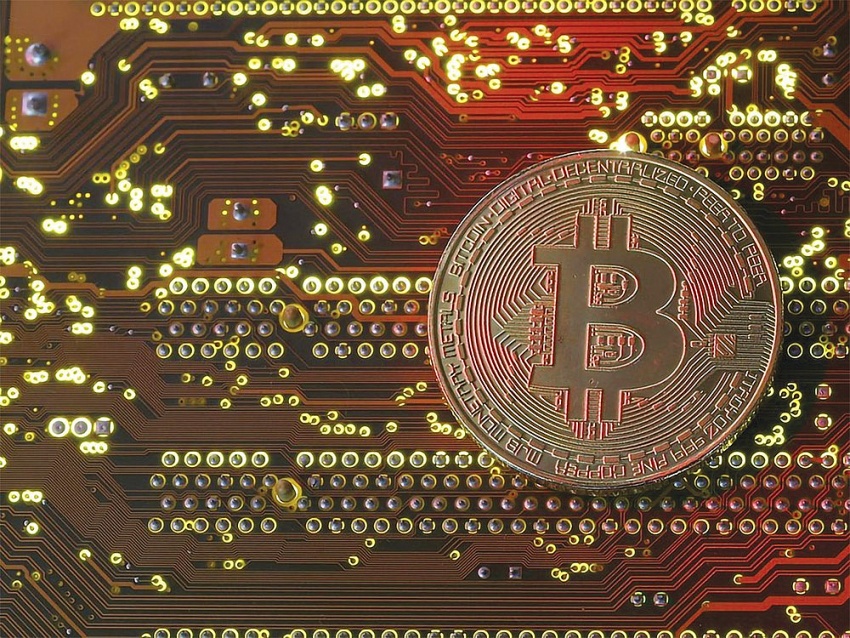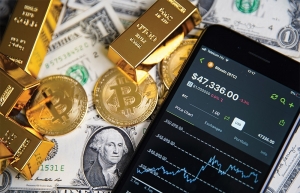Clarity sought for virtual asset future
The debate surrounding the inclusion or prohibition of virtual assets in the mainstream trading system under legal supervision is heating up, particularly after Nguyen Duy Hung, chairman of SSI Digital and SSI Securities Corporation, publicly expressed his support of digital assets.
 |
| Stronger management and legislation will help to minimise risks |
During the Digital Asset Forum organised by SSI last month, Hung said, “Vietnam ranks third worldwide in terms of digital asset trading, but the major issue at present is the lack of legal framework to recognise it. We need to propose to the government to legalise digital assets as civil transactions, thereby establishing digital asset exchanges for transparent buying and selling activities.”
During a recent visit to the Hoa Lac High-tech Park in Hanoi, Hung was informed that Vietnam is in great need of a financial framework to support startups in the blockchain and digital asset sectors.
“The digital asset market presents numerous opportunities, but also carries inherent risks in terms of legalities, fundraising mechanisms, and fraud,” Hung said. “With a clear legal framework, Vietnam has the potential to become a haven for startups, allowing them to seek support and raise capital, thereby encouraging traditional investors like SSI to provide even more support to them.”
SSI Digital is entering its second year of operation, operating independently of the SSI, a company with nearly 25 years of experience in the traditional stock market. Currently, SSI Digital is actively contributing opinions and sharing international experiences with the Ministry of Finance to expedite the completion of a legal framework for digital assets.
Meanwhile, the Vietnam Blockchain Association (VBA) has held three workshops to gather feedback on building a legal framework for virtual assets, with active participation from various organisations and individuals operating in this field.
Vice chairman Phan Duc Trung said, “Virtual assets are an irreversible global trend and banning is not feasible. Instead, we believe that it is necessary to promptly issue regulations governing virtual assets and virtual asset service providers in accordance with the anti-money laundering standards of the Financial Action Task Force (FATF).”
However, the results of consulting experts and stakeholders conducted by the VBA reveal the opposite trend, with as much as 60 per cent of opinions leaning towards the option of banning virtual assets, while the remaining 40 per cent remain neutral.
According to the Boston Consulting Group, the total global value of digital assets is expected to reach $16 trillion by 2030, accounting for 10 per cent of global GDP. Vietnam currently ranks third in the world in terms of cryptocurrency transactions, behind India and the US, with nearly 26 million people owning virtual currencies, according to the Crypto Crunch App.
The rapid rise in popularity of digital assets has posed unprecedented challenges in terms of standards, regulations regarding assets, financial markets, taxation, and risk management requirements.
Deputy Prime Minister Le Minh Khai in February signed off on the national action plan to implement the government’s commitment to prevent and combat money laundering, terrorist financing, and financing of the proliferation of weapons of mass destruction. The goal of this plan is to remove Vietnam from the Increased Monitoring List of the FATF.
The Ministry of Finance has also been entrusted with building a legal framework to ban or regulate digital assets and the organisations that provide these asset services. It is expected to be completed by May 2025.
According to the State Bank of Vietnam (SBV), virtual assets, or cryptocurrencies, are not legal tender issued by central banks, but rather created by organisations and individuals via computer algorithms online. In Vietnam, asset transactions are active via international exchanges, with popular cryptocurrencies such as Bitcoin and Ethereum.
According to an SBV survey conducted in 2023, the total transaction value of Vietnamese users on a leading virtual asset exchange alone reached around $20 billion per month. The over-the-counter market for virtual asset trading has a daily scale of no less than $100 million.
According to PhD Phan Phuong Nam from the University of Law in Ho Chi Minh City, although the management of virtual assets is challenging, it is essential. “Without recognition, individuals continue to invest and trade in an environment with risks. When virtual assets are acknowledged as a normal form of property, investors will be responsible for demonstrating the source of their funds and obtaining licences to operate in Vietnam,” Nam said.
Regulatory authorities also have the right to regulate transaction methods and provide public education to prevent misunderstandings that virtual assets are a means of payment, aiming to mitigate risks and distortions, Nam added.
According to a survey conducted by Coin98 Insights last December, 64 per cent of cryptocurrency investors in Vietnam did not make a profit, and nearly 44 per cent of digital currency investors incurred losses in 2023.
 | Legal framework for managing virtual assets and virtual asset service providers discussed Yesterday, the Vietnam Blockchain Association (VBA) organised a Scientific Workshop to Gather Feedback for Constructing the Legal Framework for Managing Virtual Assets, aimed at collecting opinions from entities, organisations, and individuals operating in the field. |
 | Strategic choice ahead for virtual asset management Any decision to recognise, ban, or regulate virtual assets could create conflicts of interest between traditional investors and those pursuing the digital economy sector, a conference on the issue has heard. |
 | Establishing and developing a virtual asset framework With the advancement of sci-tech, numerous new transaction forms and asset types have emerged, especially the rise of virtual assets. |
What the stars mean:
★ Poor ★ ★ Promising ★★★ Good ★★★★ Very good ★★★★★ Exceptional
Related Contents
Latest News
More News
- Private capital funds as cornerstone of IFC plans (February 20, 2026 | 14:38)
- Priorities for building credibility and momentum within Vietnamese IFCs (February 20, 2026 | 14:29)
- How Hong Kong can bridge critical financial centre gaps (February 20, 2026 | 14:22)
- All global experiences useful for Vietnam’s international financial hub (February 20, 2026 | 14:16)
- Raised ties reaffirm strategic trust (February 20, 2026 | 14:06)
- Sustained growth can translate into income gains (February 19, 2026 | 18:55)
- The vision to maintain a stable monetary policy (February 19, 2026 | 08:50)
- Banking sector faces data governance hurdles in AI transition (February 19, 2026 | 08:00)
- AI leading to shift in banking roles (February 18, 2026 | 19:54)
- Digital banking enters season of transformation (February 16, 2026 | 09:00)

 Tag:
Tag:




















 Mobile Version
Mobile Version